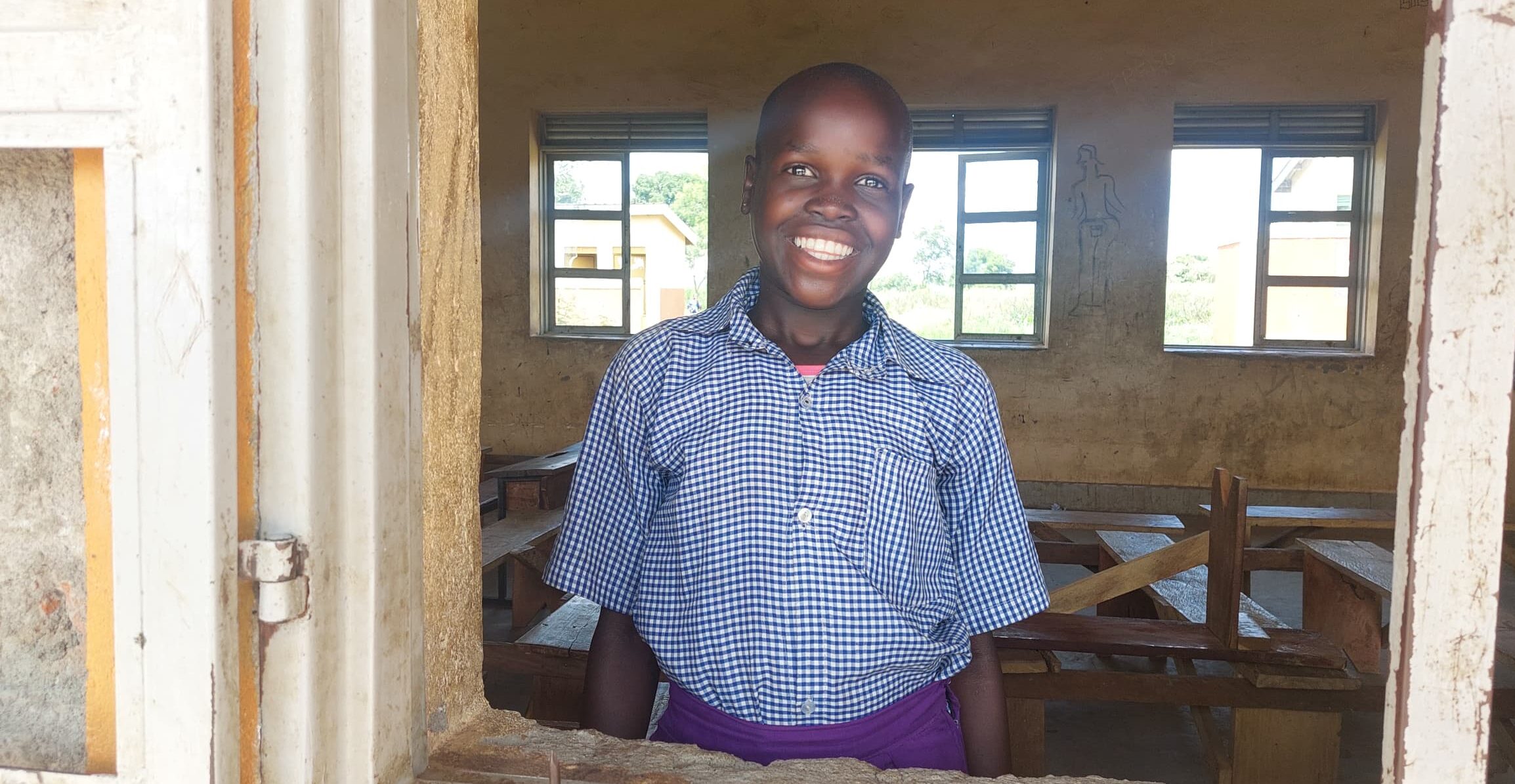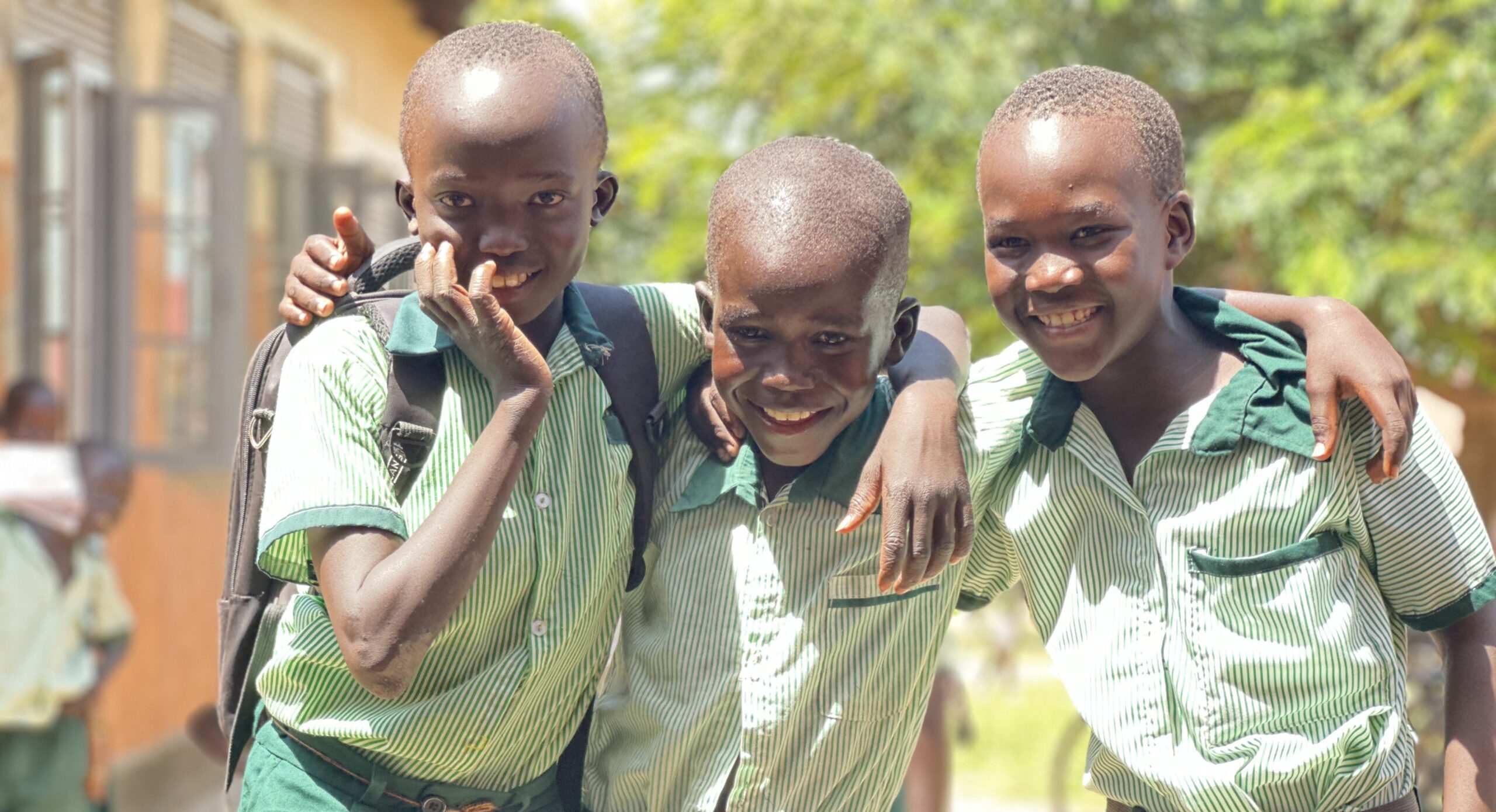
All children have the right to go to school, even if they live in a place with fighting or conflict.
In times of crisis, many refugee children are forced to leave their homes, schools, and the services that help them grow and stay healthy. Over 75 million children in crisis zones need education support, but many are already missing out on school.
When children cannot go to school, it affects their growth and well-being. They face higher risks of abuse, child marriage, being forced into dangerous work, or even joining armed groups.
We work in refugee areas to make sure children can learn in safe and good schools, no matter their situation. We give them learning materials, and train teachers to help children who have gone through trauma or conflict. We work with families and communities to give them the skills to support their children’s education.
Our programs include all children, especially girls, children with disabilities, and those from marginalized groups, so everyone has a chance to learn.

What we do
Early childhood care and development
Helping young refugee children grow and learn is very important for their future. A safe and organized place to learn and play helps children grow emotionally and physically, giving them a better chance for success and happiness later in life.
Our programs focus on giving young refugee children a chance to learn and play in a structured way. We also teach parents and caregivers how to support their children’s education and understand why it is important.
We work with young refugee mothers to help them improve their own well-being while learning skills to care for and support their children. This helps both the mothers and their children to grow stronger and happier.
Teachers in refugee areas face many challenges. They often teach large classes, have few supplies, and work with children who are upset or struggling because of their experiences. To help children, we must also support their teachers.
We train teachers to improve their skills and give them tools to handle challenges. We provide mental health support to help them stay strong and teach better. This includes showing teachers how to support children who have been through trauma.
Supporting teachers
Teachers in refugee areas face many challenges. They often teach large classes, have few supplies, and work with children who are upset or struggling because of their experiences. To help children, we must also support their teachers.
We train teachers to improve their skills and give them tools to handle challenges. We provide mental health support to help them stay strong and teach better. This includes showing teachers how to support children who have been through trauma.
We also work with governments to improve education for refugees. We help teachers share ideas and find solutions to the problems they face.

Promoting catch-up classes
In emergencies, refugee children often miss school for many reasons, like not being able to reach a school, schools being damaged, not having enough money for supplies, or needing to help their families at home. Because of this, our education needs to be flexible and meet each child’s needs.
We offer catch-up classes that allow children to learn in a way that works for them, even if they can’t attend regular school. These classes use a shorter, easier curriculum or longer school days, so children who are out of school or older than usual students can catch up.
This gives vulnerable refugee children hope for a better future. Our “Can’t Wait to Learn” program also uses technology to help children learn in a fun and interactive way, even if they can’t attend a regular school. This way, more children can continue learning, no matter their situation.
Supporting and working with communities
In refugee areas, it is important to involve the whole community in supporting children’s education and well-being. Communities have a key role in creating a safe and welcoming environment for children to learn and grow.
We work closely with families, local leaders, and community groups to help them understand the value of education. We encourage them to take part in school activities, support teachers, and help children overcome challenges. By bringing the community together, we make sure children have the support they need, both at home and in school.
Our approach helps create a strong, caring community where everyone works together to give children the best chance for a brighter future.
